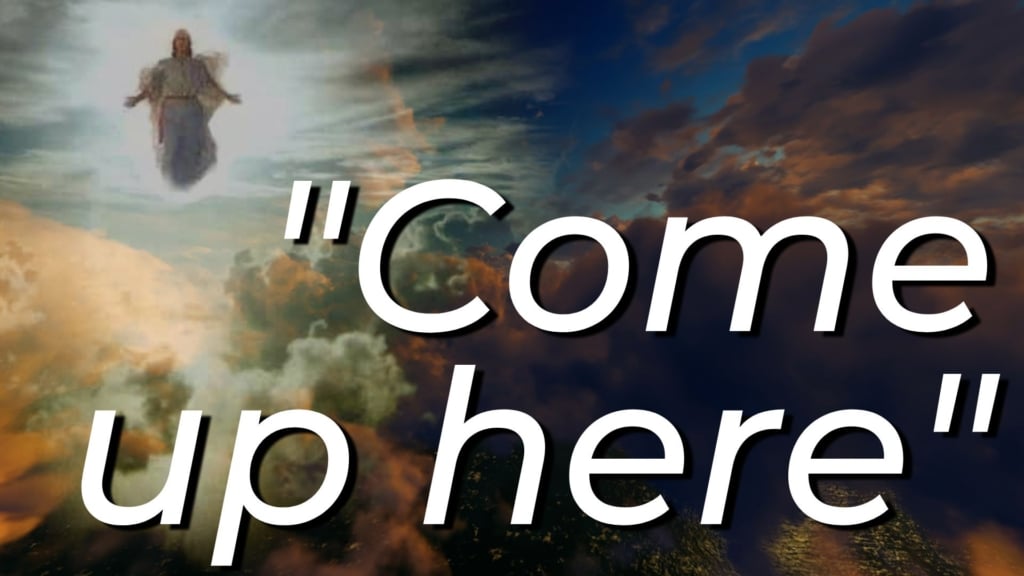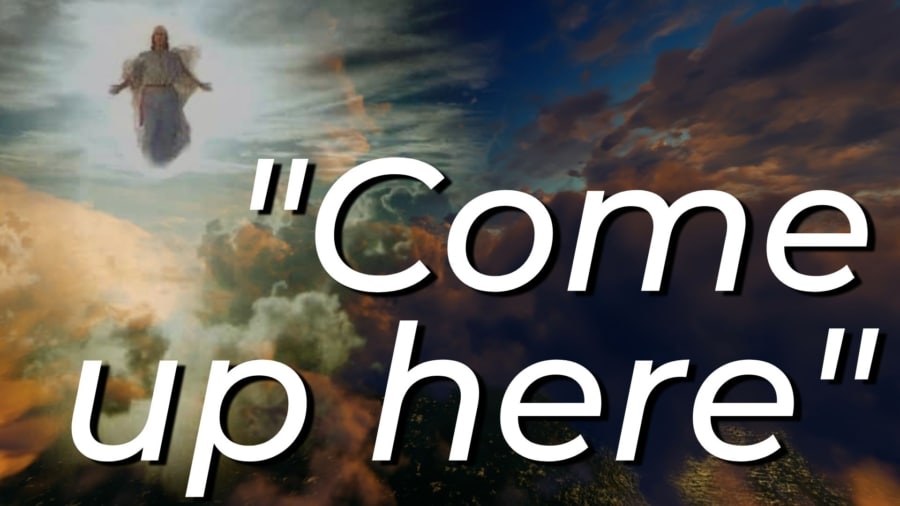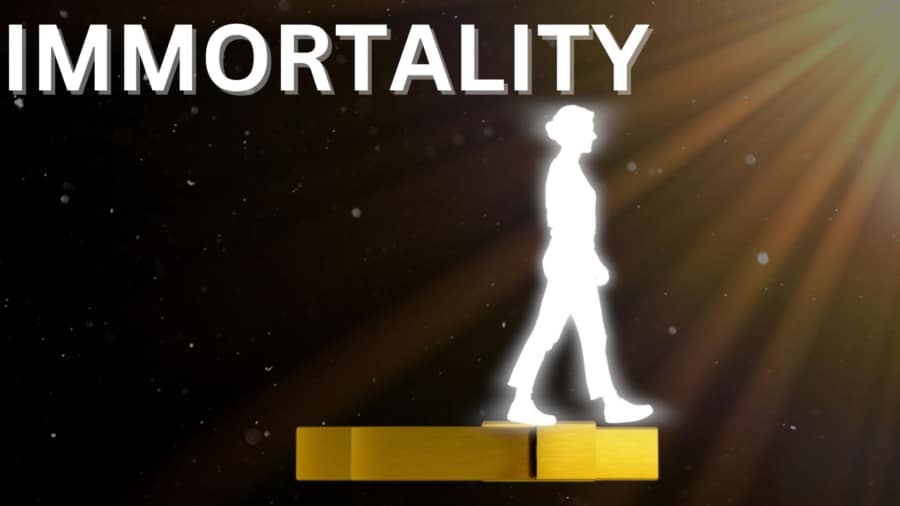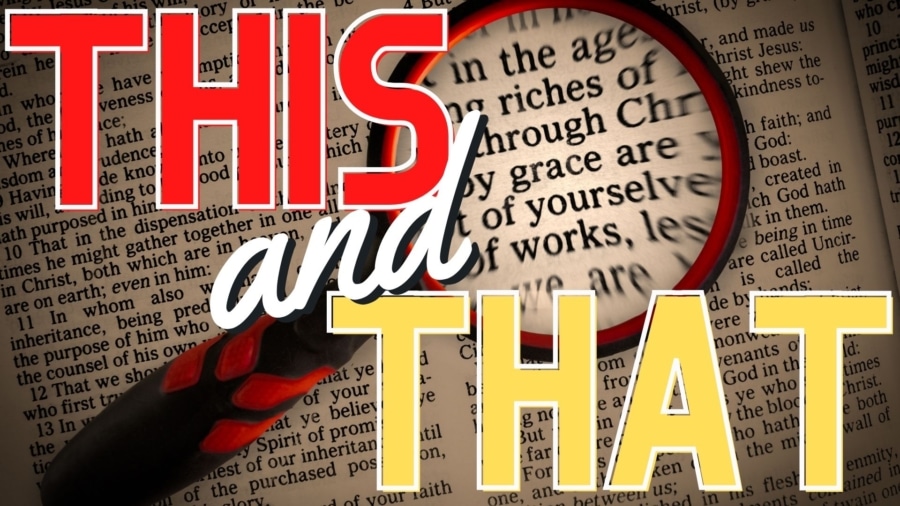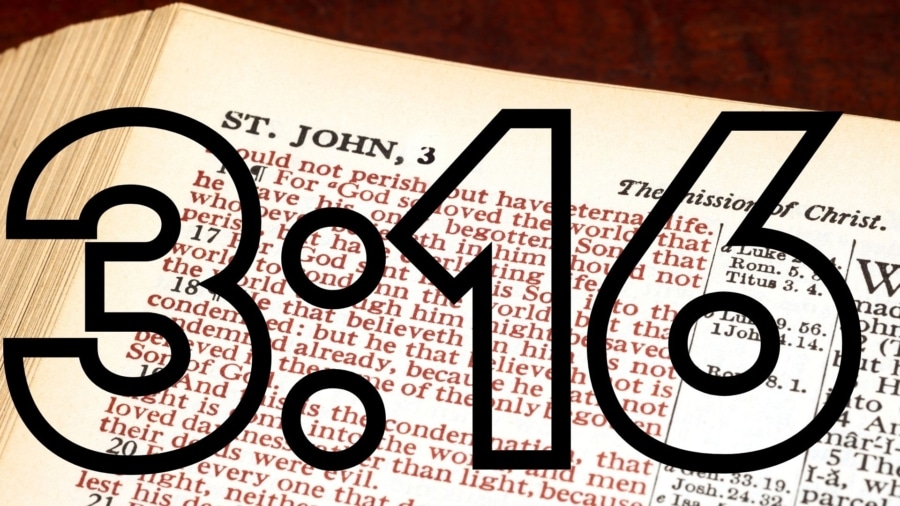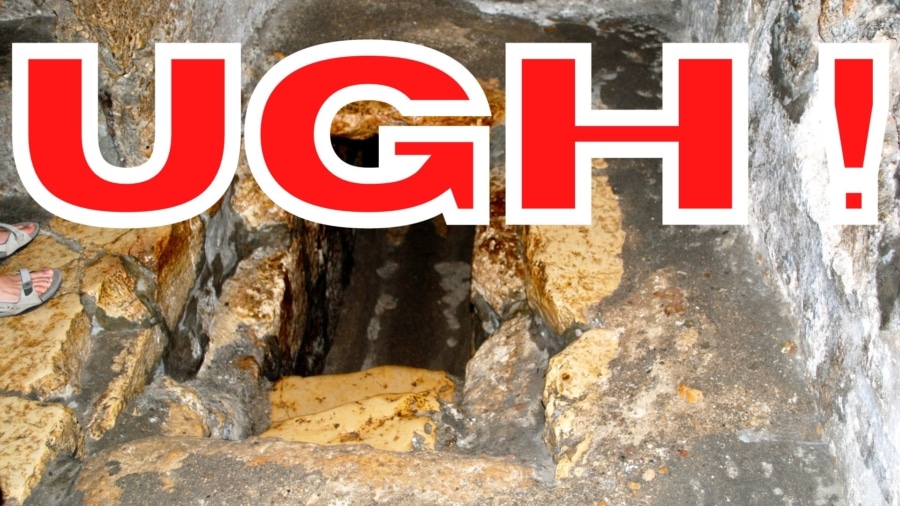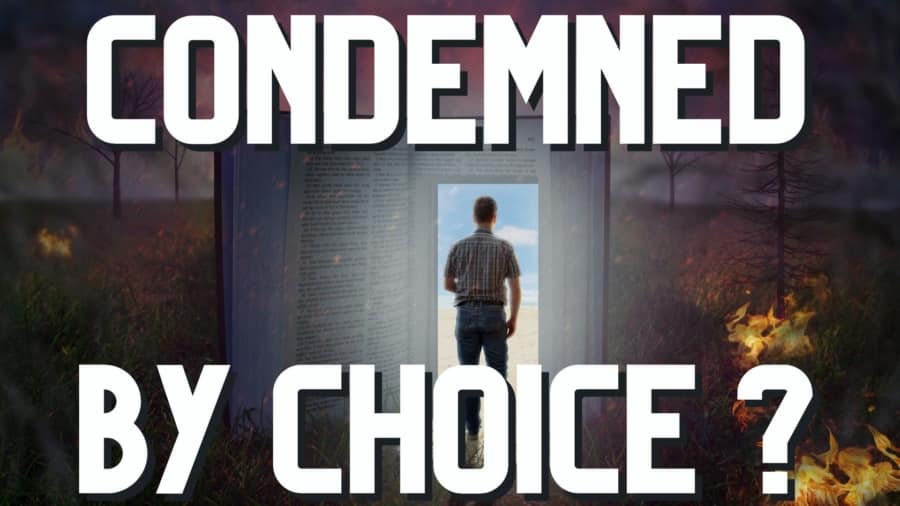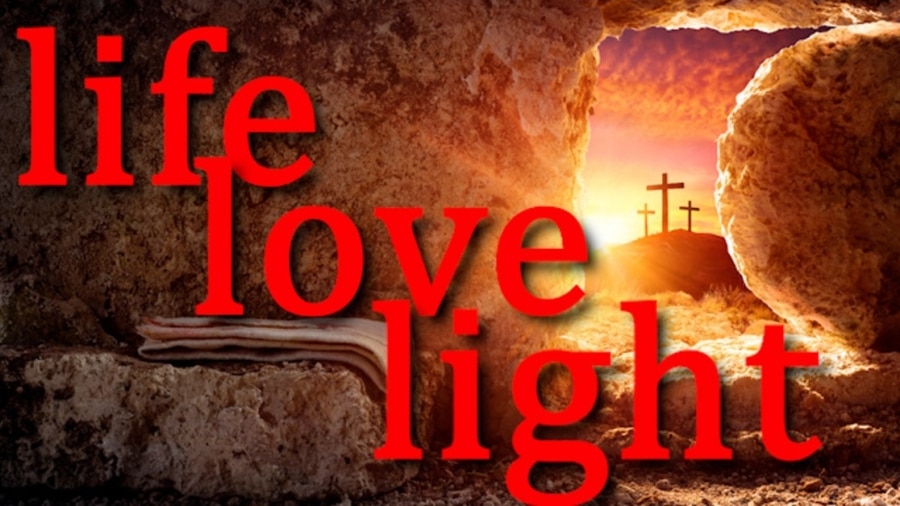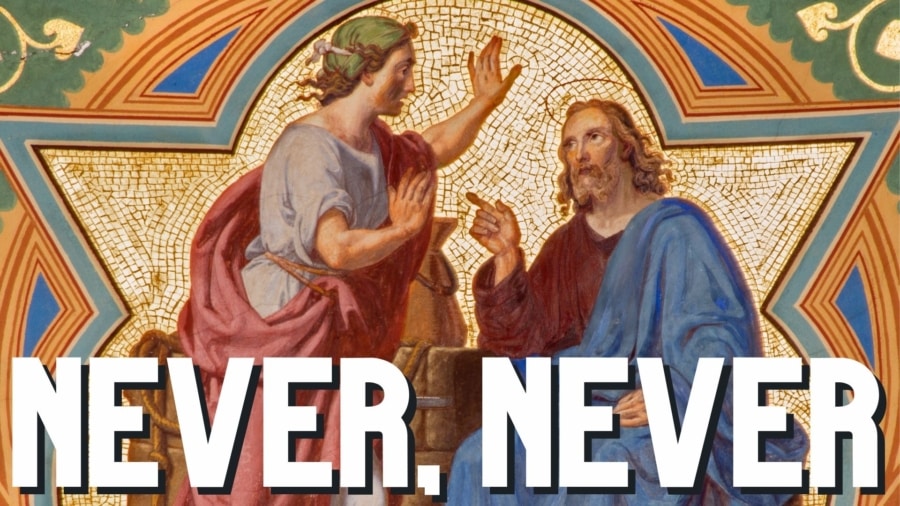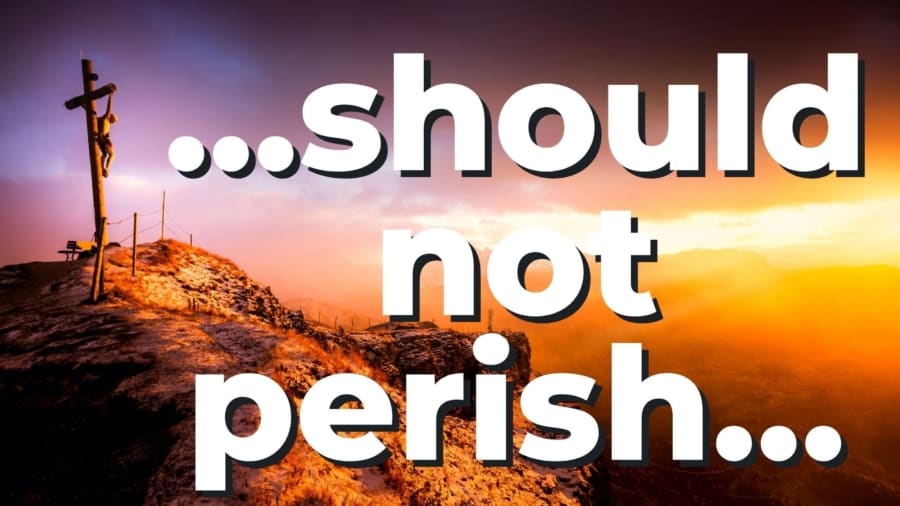- These are Written
- Believe
- Should Not Perish
- 3:16
- Never, Never
- Life, Love, Light
- Condemned by Choice
- This and That
- Seven Expressions of Love from the Cross
- Why?
- I know, I know!
- What?
- UGH!
- Expedient
- Gain Grace?
- The Gift
- The Hands of God
- Immortality
- COME UP HERE
- Not by Works of Righteousness We have Done
- Jesus’ Perspective on His own Death
- I AM
Revelation 4:1 begins, “After these things.” This is exactly the phrase that is used in Revelation 4:19, giving the outline. It refers to a specific time, namely, after the church age. So, after the church age, John says, “I looked and behold a door standing open in heaven.” This reminds us of three very important things. First, Jesus Christ is the door and identifies Himself as such (John 10:7). What kind of a door is He? He’s an open door to heaven. Second, Jesus Christ opened the door. We see that in Luke 23:45, where He cries out in the agony of separation from the Father and says, “the veil in the temple was rent from top to bottom,” signifying that the way into God’s presence is now open. The veil symbolized the fact that there was a barrier between God and man which was removed on the cross. Finally, the “door” reminds us that He has opened to us a door for evangelism. Remember, with the Church of Philadelphia, He said that He “would open for them a door that no one could close (Revelation 3:8).” You also see the apostle Paul in 1st Corinthians 6:9 asking the Corinthians to pray for him because he said, “a great door for effective service has been opened to me and there are many, many adversaries.” So, the open door is significant because it all centers around the finished work and victory of Jesus Christ on the cross.
Revelation 4:1 says, “I saw a door open in heaven.” I should point out to you that the verb here is perfect. The door opened in the perfect hands, and means it opened in the past, with the result that it remains opened in the present. Jesus Christ opened the door in the past through the work of the cross, and it remains open to the present time. When John saw the door standing open in heaven, he “heard the first voice that he had heard.” The first voice that he heard was the voice of the Lord Jesus Christ. So, he’s hearing the voice of our Lord speaking with him like the sound of a trumpet. This voice, like the sound of a trumpet, gives him a command, and the command is “COME UP HERE.” Now, it’s significant that at the end of the section dealing with church history, John should hear the command, “Come up here,” and he hears it in a voice of a trumpet. You’ll remember in 1st Thessalonians 4:13-18, we are told that “The Lord Himself will descend from heaven with a shout, with a voice of the archangel and the trumpet of God, the dead in Christ will rise first, and then we are alive and remain will be caught up together in the clouds, and so shall we ever be with the Lord.” Also, in 1st Corinthians 15:51-58, the Apostle Paul talks about how, “we shall all be changed in a moment. In the twinkling of an eye at the last trumpet.” That trumpet, I believe, is the very voice that John hears in Revelation 4:1. And what that voice says, what is said there. When the rapture of the church takes place, believers are going to hear the voice of the Lord Jesus Christ in the same manner. You might just read through John Chapter 5, because in His explanation of the resurrection, the Lord Jesus Christ said, “the hour is coming, and now is when those who are in the grave will hear his voice and they shall arise.” So, I believe that the voice that brings the dead in Christ from the ground and catches up those who are living is the very voice that we hear right here. What this portrays in verse one is the rapture of the church. Let me just point out again that while the term “church” and “churches” has been used 19 times in the Revelation Chapters one to three. You will not see the word “church” occur again until Revelation 22:16. Not until God’s plan is finished. Not until we’re in the eternal state is the church mentioned again. What we find in the interim is symbolic language in Revelation Chapters 4 and 5 in heaven. In Revelation Chapter 6 through 19, the section dealing with the tribulation period, the emphasis is all on Israel. Why? Because that’s annual 70th week. We looked at that last time. That’s the time when God is finishing His work in the nation of Israel.
“After these things” is used twice in Revelation 4:1. This is emphasis and very Hebrew. It’s a very Hebrew thing to speak something twice for the purpose of emphasis and to display perfection.
Believers are going to hear the voice of the Lord Jesus Christ. A voice that brings the dead in Christ from the ground and catches up those who are living. This is the very voice that we will hear, “COME UP HERE.”
Gene Cunningham - June 15, 2022
I know, I know
From Series: "The Simplicity of the Gospel"
“Assuredly, I say to you, unless you are converted and become as little children, you will by no means enter the kingdom of heaven.” Matthew 18:3 All little children begin the learning process in life the same way. They learn by faith. Because they know that they don’t know, they are humble. They have never seen an elephant, or a whale, but if you show them a picture book, they learn to identify whatever they are shown. If they are told, “This is an elephant,” they don’t argue and say, “No, I think that is a chicken.” They believe what they are told because it is in their child-like nature to trust. Only as we grow do we begin to assume a level of knowledge, based on what we have learned by faith. As adults we turn more and more to reason (rationalism) and science (empiricism), where we learn by trial and error. Gradually, we begin to turn away from the faith we had as little children. Here, Jesus is telling His disciples that they need to “turn around, go back” to being like little children. They need to come to Him in simple, child-like faith if they would enter into His heavenly kingdom. The same point was made on another occasion (Mark 10:13–16). When we return to the simplicity of child-like faith, we come to Jesus through His Word in humility. And Peter, the leader of the disciple band, assures us “God resists the proud, but gives grace to the humble” (1 Pet. 5:5b). It is time for us to turn back to the simplicity and humility of little children and hear the voice of our heavenly Father!


